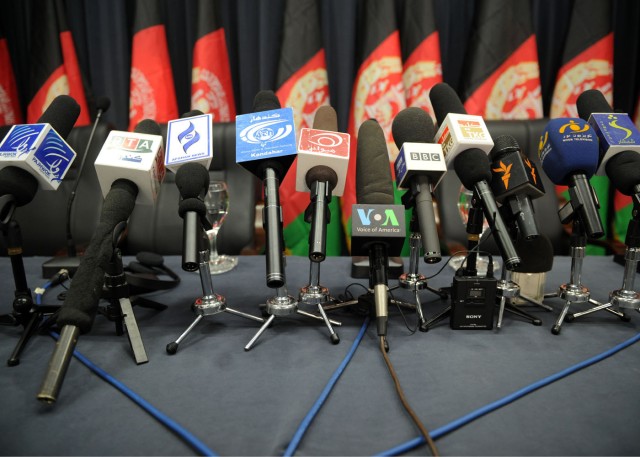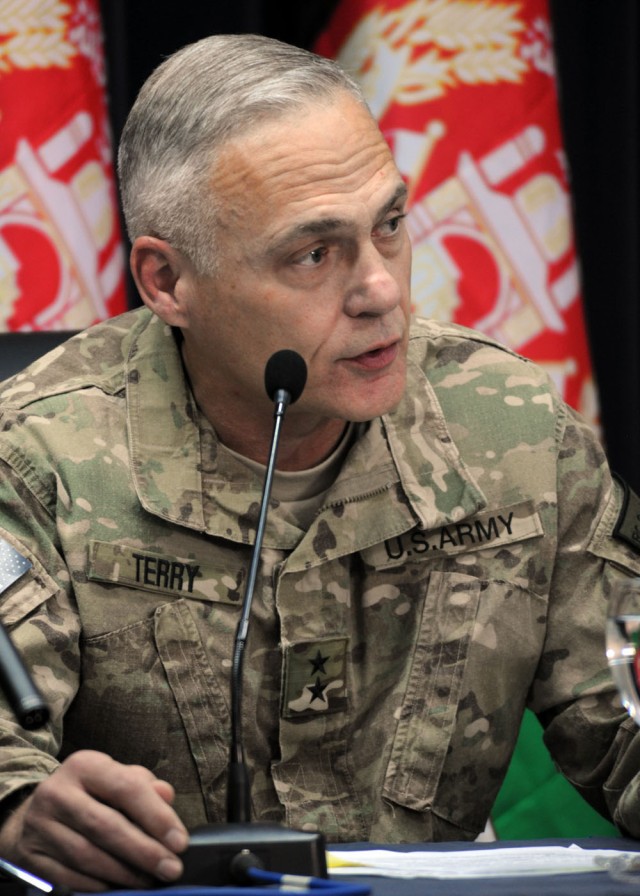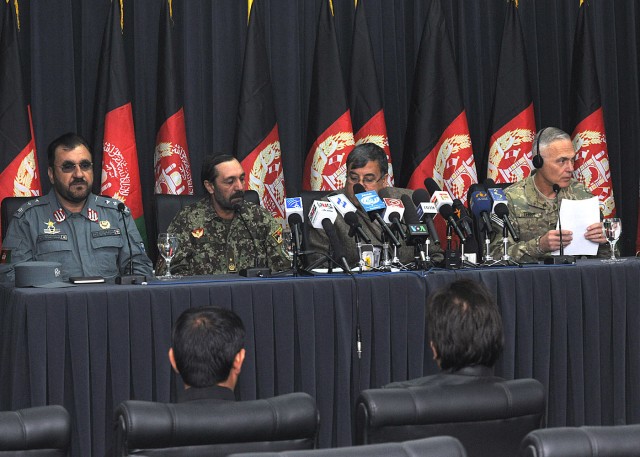Afghan and coalition leaders discussed in Kandahar City Dec. 9 quantifiable results of the recent partnered strategy that puts civilian reconstruction efforts first and military action second.
The preparations for Operation Hamkari, Dari for cooperation, began not with an aggressive offensive but with a surge of developmental agencies and an influx of International Security Assistance Forces.
Nine months after its inception, Kandahar's Provincial Governor Tooryalai Wesa, along with representatives from the Afghan National Security Forces and ISAF, described the operation with examples of emerging peace in southern Afghanistan and positive changes in government infrastructure.
Schools that have been closed due to security problems have reopened, Wesa said. Aid workers have constructed additional fruit markets, one of the local newsletters printed in color for the first time and Kandahar farmers have started taking pride in their legitimate produce.
While these developmental projects are long-term and still in infancy, Wesa continued, the ANSF is steadily making progress with the assistance of ISAF.
"I think we all realize it takes more than knives and guns in this counter-insurgency campaign," said Maj. Gen. James L. Terry, Regional Command South commander. "It really requires that governance and development aspect that's out there."
Terry commands ISAF's multi-national military presence responsible for provincial reconstruction and security in Kandahar, Lashkar Gah, Qalat and Tarin Kot. Fighting still exists between the international forces and insurgents, but the winter season has seen a decrease in terrorist movements and attacks.
"In the winter, as it approaches, our aim is to assist the Afghan National Security Forces, take advantage of this period, and become well established with the local population before the spring actually comes up," Terry said. "We have a great opportunity this winter to make a permanent change for the benefit of the Afghan people."
Kandahar City is already clear of the presence of the enemy, said Afghan National Army Brig. Gen. Abdul Hamid, 205th Corps commander. The majority of the ANSF now are tasked with detecting and disposing of mines and booby traps left by the insurgents as they fled. Many Afghan civilian workers are now comfortable taking part in major reconstruction projects throughout the area.
"The security of the province has greatly changed," Hamid said about the way in which the ANSF and ISAF forces are conducting Operation Hamkari. With backing from international forces, the Afghan military leads clearing operations with the intent of providing security and stability until governance forms.
"In Hamkari," Wesa said, "the ANSF stay in the area, once secure, to keep that sustainability. We do not leave; we want complete and stable security so we can begin the development projects."
As the date nears for the U.S. combat forces withdrawal from Afghanistan, Terry assured the ANSF leaders that the current mentorship, training and support will not falter.
"We are here to support the Afghan National Security Forces and the people of Afghanistan to help move toward a brighter future," Terry said. "When I took command, I used an old Pashtun quote: 'A friend appears in hard times, and not just at big dinners.' We are here to stay with you through the hard times."






Social Sharing